- Home
- Darrell Maloney
A Whole New World: Ranger: Book 2
A Whole New World: Ranger: Book 2 Read online
A WHOLE NEW WORLD
Ranger:
Book 2
By Darrell Maloney
Cover illustration by Allison Chandler
This is a work of fiction. All persons depicted in this book are fictional characters. Any resemblance to any real person, living or dead, is purely coincidental. Copyright 2016 by Darrell Maloney
This book is dedicated to my father, Troy Maloney, who was always and still is the greatest man I’ve ever known.
Thanks for everything, Dad.
Chapter 1
Steve Peters was one of those people who’d always thought himself superior to others.
In early 2012, the world was going nuts about the Mayan culture’s “doomsday prediction” and what it might mean. Scholars all over the planet were openly debating what the Mayans meant when they said a catastrophe was coming on December 21st of that year, and that most of the human race would perish.
Steve did his own research, spent countless hours on the internet and at his local library, and came to his own conclusion.
After considering all the other options, he concluded the Mayans were referring to the sun.
More specifically, the sun’s tendency to occasionally bombard the earth with powerful electrical energy. Energy which didn’t adversely affect humans. But which would do unfathomable damage to the machines of the world.
The energy came in the form of waves, called electromagnetic pulses, or EMPs. And the Mayans knew, Steve was convinced, that the years following 2012 would be especially susceptible.
December 21st, Steve believed, didn’t mark the date the EMPs would actually strike the earth. But rather the date the window opened up for increased solar storm activity.
It was that activity which created the EMPs and unleashed their fury.
The naysayers outnumbered the believers.
“The Mayans were an ancient people,” they said. “They didn’t know anything about machines. Or electricity. How could they have known about solar storms which might short out things that hadn’t even been invented yet?”
Steve wasn’t fazed. Not at all. The fact the Mayans were a greatly technologically advanced civilization wasn’t in dispute. There was evidence they plotted the stars and the planets, and even those planets’ moons, without the aid of telescopes or even spyglasses.
And there was more… so much more. The Mayans’ hieroglyphics included crude drawings of such things as helicopters, spaceships and light bulbs. The drawings were the basis of many theories that earth had once been visited by extra terrestrials, who imparted their wisdom on the Mayans before leaving again.
The Mayans could predict earthquakes, and told of huge ocean liners, although they were a landlocked people who in theory shouldn’t have even known the oceans existed.
In Steve’s mind, dismissing the Mayans’ predictions was sheer folly.
He’d let others debate whether there was some other reasonable explanation for the technological advancement of the culture. Whether or not their doomsday warnings had merit.
Steve had neither the time nor inclination to get involved in such a debate. He’d leave that to the weak-minded souls who saw nothing wrong with wasting their time, and their own chances of survival.
Steve would spend his time preparing.
It was in June of that year, in 2012, that Steve became a full time prepper.
It was a lifestyle which suited him, for he was a loner anyway. His abrasive and narcissistic personality tended to drive people away. It took him a long time to make friends and they usually didn’t last for long. Invariably he’d find reason to tell them how stupid they were. And how he, Steve, was so much more intelligent, so much wiser. And invariably they’d decide there was no reason to stay in a friendship where they were belittled and insulted.
So they left.
Occasionally one of them would be so incensed by Steve’s behavior they’d tell him off.
Steve always responded in the same manner:
“There will come a day when the world comes crashing down on all of us. You’ll come running to me and finally admit I was right all along. You’ll beg me to save you and your ugly wife and ignorant children. And I’ll tell you to go to hell.”
Others weren’t so bold as to confront Steve about his bad attitude. They merely recognized his flaws, considered him crazy or unstable, and made a point to avoid him whenever possible.
One such former acquaintance of Steve’s was none other than John Shultz, a major in the Texas Rangers, and the commander of Ranger Company C.
Chapter 2
Major Shultz was mowing his lawn that day, on Ridgemont Drive in south Lubbock. The house two doors down, a four bedroom brick ranch home, had only been on the market for a month or so when a realtor added a red “sold” placard onto the “For Sale” sign.
When a man pulled into the driveway that day and walked toward the front door carrying a box full of dishes, Shultz naturally assumed he’d just laid eyes on a new neighbor.
It seemed as good an excuse as any to shut off his mower and take a break.
Steve had been in a particularly benevolent mood on that afternoon, and took the time to visit with this underling. He certainly felt no obligation to do so. After all, one of the basic tenets of prepping was to avoid casual friendships and close relations with neighbors.
The thinking was that those casual friends and neighbors would become major pains in the ass once the stuff hit the fan. Not to mention major mooches. In the worst case scenario, they could be downright dangerous. Especially if they learned their neighbor was a prepper who’d actually prepared for the catastrophe when they hadn’t.
Major Shultz, for his part, thought Steve was friendly enough, but a bit of an odd duck.
Especially when he learned Steve was a single man with no girlfriend and no intention of marrying.
He told his wife, “I don’t know why he’d want or need a four bedroom house with a full basement, if it’s just him and always will be just him.”
“His money, his business,” Mrs. Shultz had admonished him. “He gives me the shivers. I’d just as soon stay away from him and let him hole himself up in his big empty castle, just so I don’t have to look at him.”
Since that day, they’d been like a lot of suburban neighbors: neighbors who were more strangers than friends.
Shultz didn’t know about Steve’s food and weapon stockpiles. He didn’t know that Steve’s entire basement, including the ceiling and the floor, had been lined in thin sheet metal. And another layer of plywood. In essence, his basement was converted into a huge Faraday cage. A cage which protected a large stockpile of batteries, electronics and automobile parts. Things which would allow Steve to live like a king in his cozy little hideaway while the rest of the world suffered. And which would allow him to get several vehicles running.
So that when he felt the time was right, he could leave his hideout and rejoin the world.
Only on his terms.
Shultz didn’t know any of that.
What he did know, though, was that Steve had a working ham radio.
And Shultz desperately needed one.
Two years before Shultz came home from work to find a large wooden crate taking up half his driveway.
The delivery company which left the crate there was either stupid, or lazy, or quite possibly both.
For the crate didn’t even belong to Shultz.
Had he come home an hour before, he’d have seen Dumb and Dumber standing in his driveway, scratching their heads and debating on their next course of action.
“Uh… Lenny… I think this is the wrong driveway.”
“What the hell are you talking abou
t, Al?”
“Look at the manifest. It says 5708 Ridgemont. The number on the house says 5704.”
Lenny was infinitely more stupid than Al. Unfortunately, he also had seniority and that made him in charge.
He was responsible for the mistake, and the one who’d have to fix it.
“Should we load it back up, Lenny?”
Lenny thought about his options.
Then he made a command decision.
“No. It weighs three hundred pounds. It was hard enough dragging it off. This job don’t pay enough to ruin my back lifting it back up again. Once it hits the ground, I’m done.”
Lenny and Al jumped back in their truck and left it there, figuring it was somebody else’s problem.
They stopped in front of Steve Peters’ house just long enough to place a sticker on his door:
SORRY WE MISSED YOU, YOU WERE OUT
_____ Please call our office for redelivery
_____ Parcel will be delivered on _____ AM/PM
__X__Parcel was delivered to 5704 Ridgemont
The pair never knocked on the door, never rang the bell. They placed the sticker and got the hell out of Dodge.
For if they’d rung the bell or knocked, Steve would have answered the door and insisted they do their jobs and go back for his crate. And that just wasn’t an acceptable option for Lenny and Al.
Shultz noted the shipping label on the crate, walked over to 5708 Ridgemont and rapped on the door.
Steve assumed the visitor was the delivery service and was Johnny-on-the-spot, opening the door within seconds.
“I think I have something that belongs to you,” Shultz said.
Steve took the sticker from the doorjamb and read it, then cursed a blue streak.
“I’ll tell you what,” Shultz said. “It’s after five o’clock on a Friday afternoon. I’ve had stuff delivered by Allied Shipping before too. I know they don’t work on weekends. You’ll have to wait until Monday just to talk to them, and probably several more days before they come out and fix their mistake. If you want, I’ll help you lug whatever’s in your crate over here and I’ll just throw the crate into my dumpster.”
It was a neighborly offer. And it wasn’t a surprise, for John Shultz was known around the neighborhood for being a pretty decent guy.
And the first person to help someone in need.
After all, he was a Texas Ranger.
Chapter 3
Steve was stuck between a rock and a hard place on that particular day. The crate contained galvanized steel sections for a sixteen-foot tower he was building in the corner of his back yard.
Pieces that were too heavy and too clumsy to carry from John Shultz’s house to his own without dragging.
And dragging them would probably damage them to the point they wouldn’t fit together.
So Steve, against his better judgment, allowed the cordial neighbor to help him, all the while trying to come up with a good cover story to explain his need for a sixteen-foot high steel tower in his back yard.
As it turned out, though, an explanation wasn’t necessary. And wouldn’t have been believed anyway.
For there, in three inch black letters stenciled on the crate, were the words
TOWER, HAM RADIO, FCC CAT 2
Even if the words weren’t emblazoned on the crate, John Shultz would have known. He’d seen and used ham radios before. And it wouldn’t have been a big deal to him. They were relatively uncommon in the suburbs, but not illegal.
Many hobbyists used them to while away the hours while chatting with other radio enthusiasts around the world.
Had Steve not opened his big mouth, Shultz would have tagged him merely as one of those ham radio hobbyists and nothing more. He’d have helped him carry the heavy pieces into Steve’s back yard, broke up the crate and placed it into the dumpster just as he offered.
And wouldn’t have thought any more about it.
But Steve opened his mouth to brag when John Shultz asked about his radio.
“Oh, it’s top of the line,” Steve gushed. “A Radiola Series 700, with high range output, all weather clarification and broadband scanner. All digital, and EMP protected in a self-contained casing to boot.”
Most people would have been dazzled by Steve’s words, much of which was pure unadulterated bullshit.
But Shultz, in addition to knowing a little bit about ham radios, also knew a little about preppers. He had a couple of his friends who’d been preppers over the years, although neither of them owned a ham radio.
He knew enough about the prepping game to understand the term “EMP” and what it implied.
He didn’t say anything at the time.
But he never forgot either.
And now, two years later, four days after massive EMPs bombarded the earth and thrust the planet into a blackout, he remembered that little tidbit.
Specifically the words “EMP protected in a self-contained case.”
Here he was, hat in hand, on Steve Peters’ front porch.
He’d seen the eviction notice taped to the front window of the house. It appeared to be from a mortgage bank in nearby Fort Worth, ordering one Steve Peters to surrender said property forthwith, and included several paragraphs of legal mumbo jumbo.
Shultz had peered inside the picture window and seen a very large bedroom.
Very large and very empty.
He could have left.
But he had a hunch.
A good law enforcement officer never ignores his hunches. They’re typically borne of years of experience and knowledge of the inner workings of the criminal mind.
With perhaps a tiny bit of voodoo added in.
Shultz’s hunch told him the eviction notice signed just a few days before was just too convenient.
And he certainly hadn’t seen any moving van, or any other indication Steve Peters had moved away.
Of course, that didn’t necessarily mean anything. If he had, he certainly wouldn’t be the first deadbeat sneaking out of a foreclosed home in the dead of night. Shultz imagined it would be a humiliating and humbling experience.
Still, his hunch told him the whole eviction notice thing was a ruse. Perhaps a ploy to make an occupied house seem empty and abandoned.
Perhaps to ward away looters.
He knocked again.
This time the door opened.
It was the first time Shultz had laid eyes on his reclusive neighbor in months.
His clothes were tattered. He now sported a full beard.
And his hair looked as though it hadn’t seen a comb in weeks.
Steve smiled, which unnerved Shultz just a bit.
Then he stepped aside, letting Shultz enter.
“I’ve been expecting you,” he said.
Chapter 4
Television had skewed the public’s perception of a Ranger’s life. They don’t get shot at on a daily basis. And although the Rangers encourage their men to be fit and healthy, a single Ranger seldom finds himself faced with ten armed men, having to defend himself with roundhouse punches and martial arts kicks.
Still, a Ranger’s life is not easy. They’ve got that in common with all other law enforcement officers. Rangers generally work behind the scenes. Not wearing uniforms enables them to blend in with the public. Many people don’t even identify them as peace officers until they produce a badge or identify themselves as such.
Many of Tom Cohen’s neighbors thought him to be a banker or an accountant, or maybe an insurance agent. They’d seen him leave his house each morning dressed in slacks and a sports coat, and he looked like just another businessman.
The fact he wore the sports coat even in the scorching heat of the Lubbock summers, while others shed theirs, gave few a second thought.
It never occurred to anyone he might be wearing the coat not because he was cold, but rather to cover his service weapon.
Brandishing such a weapon in public was certainly legal. Even for those not in law enforcement. Texas was an open-carr
y state, and many of its citizens proudly displayed their weapons for all the world to see.
No, Tom Cohen hid his weapon for two reasons.
First of all, he personally considered open-carry an unnecessary act of bravado bordering on recklessness. After all, in a shooting situation, the bad guys would aim first for those they knew to be armed. In Tom’s eyes, openly carrying a weapon into an active shooter situation was akin to placing a huge target on one’s back.
But mostly, he preferred to cover his weapon to further one of the oldest Texas Ranger traditions. Keeping a low profile.
Rangers didn’t wear uniforms. They had the option of wearing their badges on the outside of their clothing, but generally chose not to do so unless working a crime scene.
Rangers were decidedly low-key. The tactic had served them well for a very long time. It helped citizens see them as people first, then law enforcement later. It helped gain the trust of many a witness who might have been reluctant to cozy up to a uniformed cop. It helped give victims and their families the sense they were human and not robotic, as uniformed officers are sometimes perceived to be.
It helped them solve many cases over the years.
On the third day of the blackout Major Shultz ordered his men to return to their neighborhoods pending further instructions from Ranger Headquarters in Austin.
“Until we get guidance from HQ, you’ll do more good at home. Spend your days helping your neighbors as best you can. Provide security for them. Help them protect what’s theirs. Keep the bad guys from bullying them or stealing from them.
“We’ll meet here at Company C Headquarters at high noon every other day until we get further instructions. Don’t be late or I’ll have your ass.”
Major Shultz was an easy going man and a great commander. He didn’t lay down the law often. But those who knew him well knew him as tough when he needed to be. “Ranger tough,” they called it. And when he said he’d have the ass of any man who reported late for muster, they knew it to be true.

 A Perilous Journey
A Perilous Journey The Yellowstone Event: Book 6: The Aftermath
The Yellowstone Event: Book 6: The Aftermath Eden Bound
Eden Bound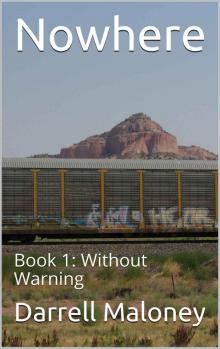 Without Warning
Without Warning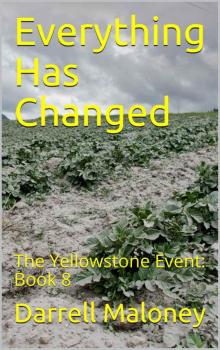 Everything Has Changed
Everything Has Changed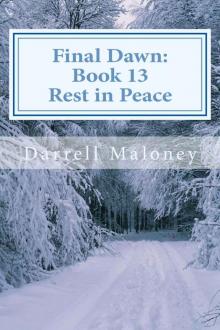 Rest in Peace
Rest in Peace This Changes Everything
This Changes Everything The Final Chapter
The Final Chapter It Can't Be Her
It Can't Be Her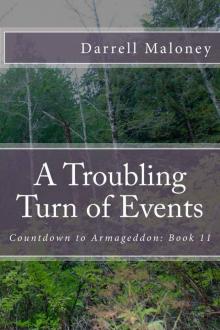 A Troubling Turn of Events
A Troubling Turn of Events The Blockade
The Blockade A Tearful Reunion
A Tearful Reunion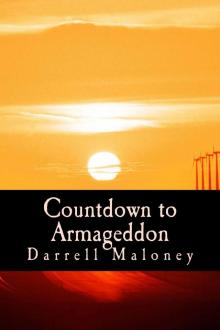 Countdown to Armageddon
Countdown to Armageddon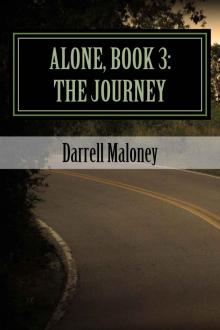 Alone, Book 3: The Journey
Alone, Book 3: The Journey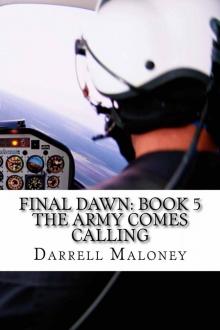 The Army Comes Calling
The Army Comes Calling The Grim Reaper Comes Calling
The Grim Reaper Comes Calling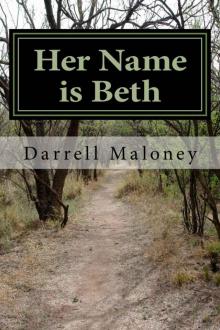 Her Name is Beth: Alone: Book 5
Her Name is Beth: Alone: Book 5 Red: The Adventure Begins
Red: The Adventure Begins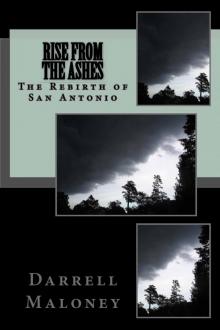 Rise From The Ashes: The Rebirth of San Antonio (Countdown to Armageddon Book 3)
Rise From The Ashes: The Rebirth of San Antonio (Countdown to Armageddon Book 3) An Unkind Winter (Alone Book 2)
An Unkind Winter (Alone Book 2)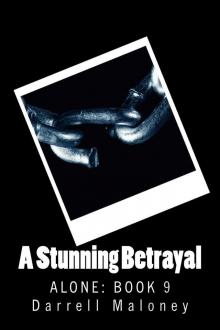 A Stunning Betrayal: Alone: Book 9
A Stunning Betrayal: Alone: Book 9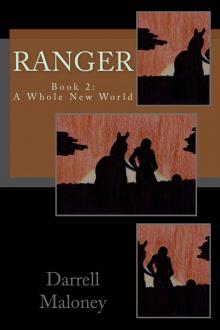 A Whole New World: Ranger: Book 2
A Whole New World: Ranger: Book 2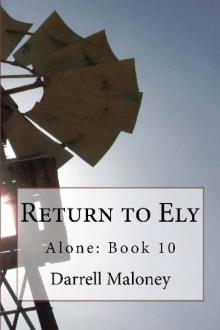 Return To Ely
Return To Ely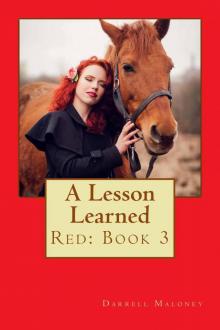 A Lesson Learned: Red: Book 3
A Lesson Learned: Red: Book 3 The Homecoming: Countdown to Armageddon: Book 5
The Homecoming: Countdown to Armageddon: Book 5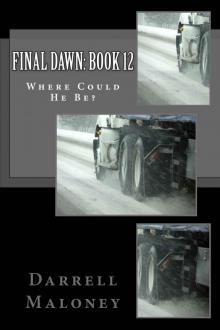 Final Dawn: Book 12: Where Could He Be?
Final Dawn: Book 12: Where Could He Be? An Acquired Taste
An Acquired Taste On Desert Sands: Alone: Book 6
On Desert Sands: Alone: Book 6 The Battle: Alone: Book 4
The Battle: Alone: Book 4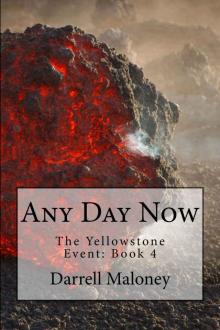 Any Day Now
Any Day Now Too Tough To Tame: Red: Book 2
Too Tough To Tame: Red: Book 2 No Help From Austin: Red: Book 5
No Help From Austin: Red: Book 5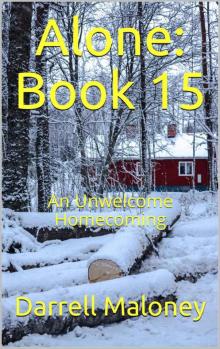 An Unwelcome Homecoming
An Unwelcome Homecoming A New Start: Final Dawn: Book 9 (Volume 9)
A New Start: Final Dawn: Book 9 (Volume 9)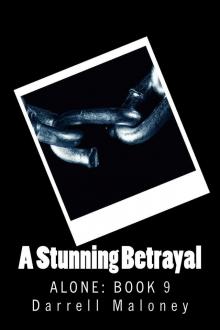 A Stunning Betrayal
A Stunning Betrayal An Undeclared War (Countdown to Armageddon Book 4)
An Undeclared War (Countdown to Armageddon Book 4)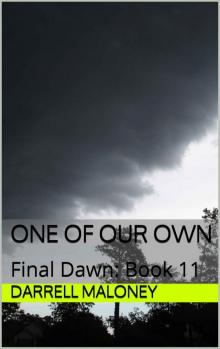 One of Our Own: Final Dawn: Book 11
One of Our Own: Final Dawn: Book 11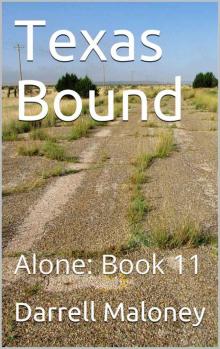 Texas Bound: Alone: Book 11
Texas Bound: Alone: Book 11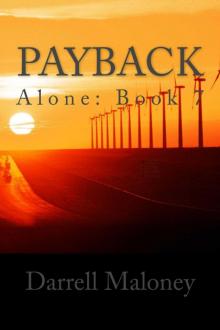 Payback: Alone: Book 7
Payback: Alone: Book 7 The Quest: Countdown to Armageddon: Book 6
The Quest: Countdown to Armageddon: Book 6 The Siege
The Siege The Yellowstone Event: Book 1: Fire in the Sky
The Yellowstone Event: Book 1: Fire in the Sky Return to Blanco (Red Book 4)
Return to Blanco (Red Book 4) The Search
The Search AFTER THE DUST SETTLED (Countdown to Armageddon Book 2)
AFTER THE DUST SETTLED (Countdown to Armageddon Book 2)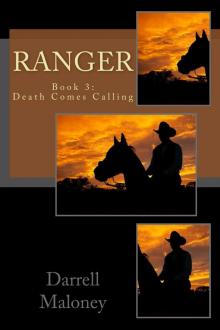 Death Comes Calling (Ranger Book 3)
Death Comes Calling (Ranger Book 3) A Long Road Back: Final Dawn: Book 8
A Long Road Back: Final Dawn: Book 8